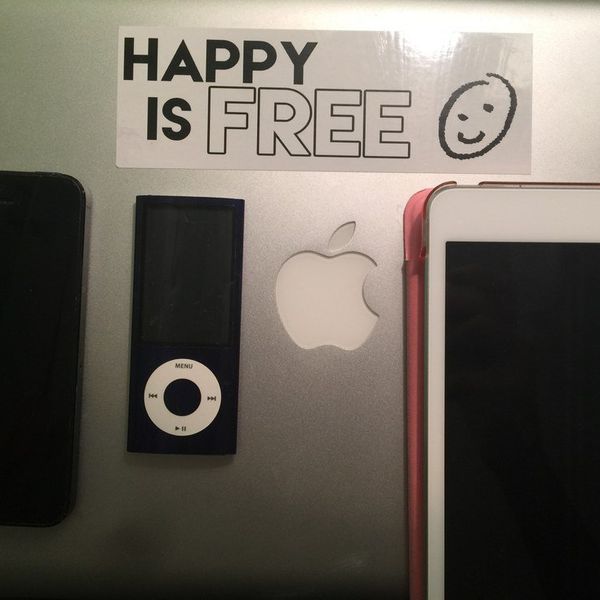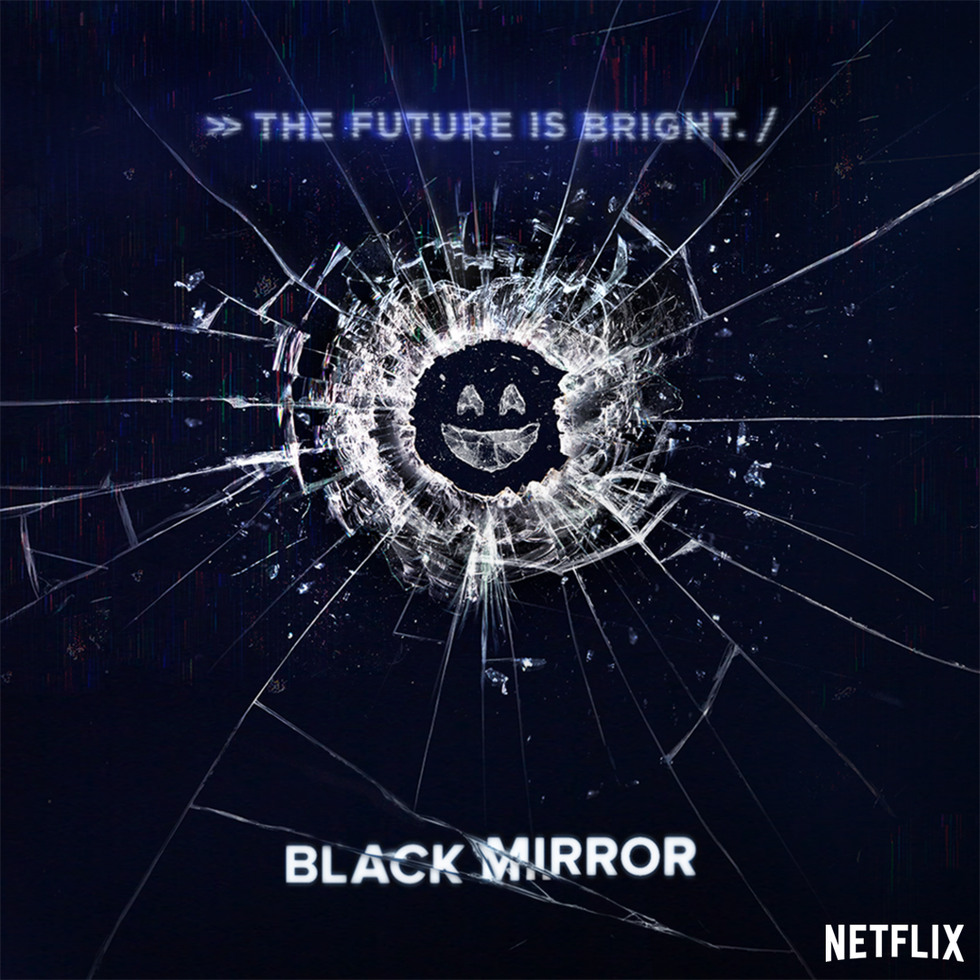If you haven’t seen the show yet, stop reading this and go watch an episode, any episode.
Black Mirror is a television series available on Netflix that began in 2011. There isn’t any real plot-line that follows through the different episodes; all stories are unique with only one thing in common: they live in a near-future society controlled by social media echo chambers that we all currently live in.
It was terrifying. Although fictional, these stories are visual hyperbole to highlight the already-prevalent issues we face through social media. It shows the raw consequences of living an entire life through a screen—a black mirror—and how much it can disconnect one from reality.
Do you ever walk through a crowded area and see groups of people sitting around a table silently, mindlessly scrolling, spewing out information gathered from their smartphones? Or a young child, crying out for attention, receiving in return a device to distract them from their desire of comfort? These examples show how social media can sometimes be the easy way out for people in uncomfortable situations.
Technology has provided an outlet for humans to escape their current situation whether it be waiting in a line, at a party, or in any situation that involves the essence of time. It’s almost as if we try to pass each minute quicker by absorbing as much information we can. Car rides are spent catching up on Instagram; lines at Starbucks pass by quicker when you scroll through Donald Trump’s latest tweets; events that trap us into face-to-face communication are far and few as technology is encouraged everywhere you go. Why are we trying to pass time quicker when it’s the most precious element of our very existence? Self-confidence also comes into play because it is so easy to hide who we really are (escaping the risk of vulnerability) and cast ourselves to the world as an alter, ideal being.
One thing that Black Mirror has helped me with is embedding my passion deeper for my career: re-focusing our world on the importance of the environment and its dire salvation. I have glimpsed a very scary projection of the reality currently rooting itself irreversibly into the void of vulnerability.
Sadly, there is no closure in this show. There is no happy ending. I think it’s that way for a reason. This series is meant to show us how bizarre our technology habits really are. It is meant to snap us out of our screen-induced trance so we can re-prioritize what is important. The human connection has diverged into a million sub-identities that are in constant communication online; but in real life, have a silent judgement on a person before they even step inside a room. This dissociate society we have evolved into is transforming our being onto a sim card. Not many people have thoughts for the sake of thinking anymore, but for the approval of others through a like, comment, or Snapchat back.
Technology is a complex, intricate, wondrous invention that has progressed beyond any limitations. It is not a problem to be technologically involved and to enjoy the benefits of social media throughout life. It becomes a problem when one is living for social media, and only acting a certain way to receive positive feedback from online sources.
If you’re questioning whether you should watch this show: the answer is yes. Use this show as a tool to understand the severity of technology addiction and how it’s destroying human communication.




















